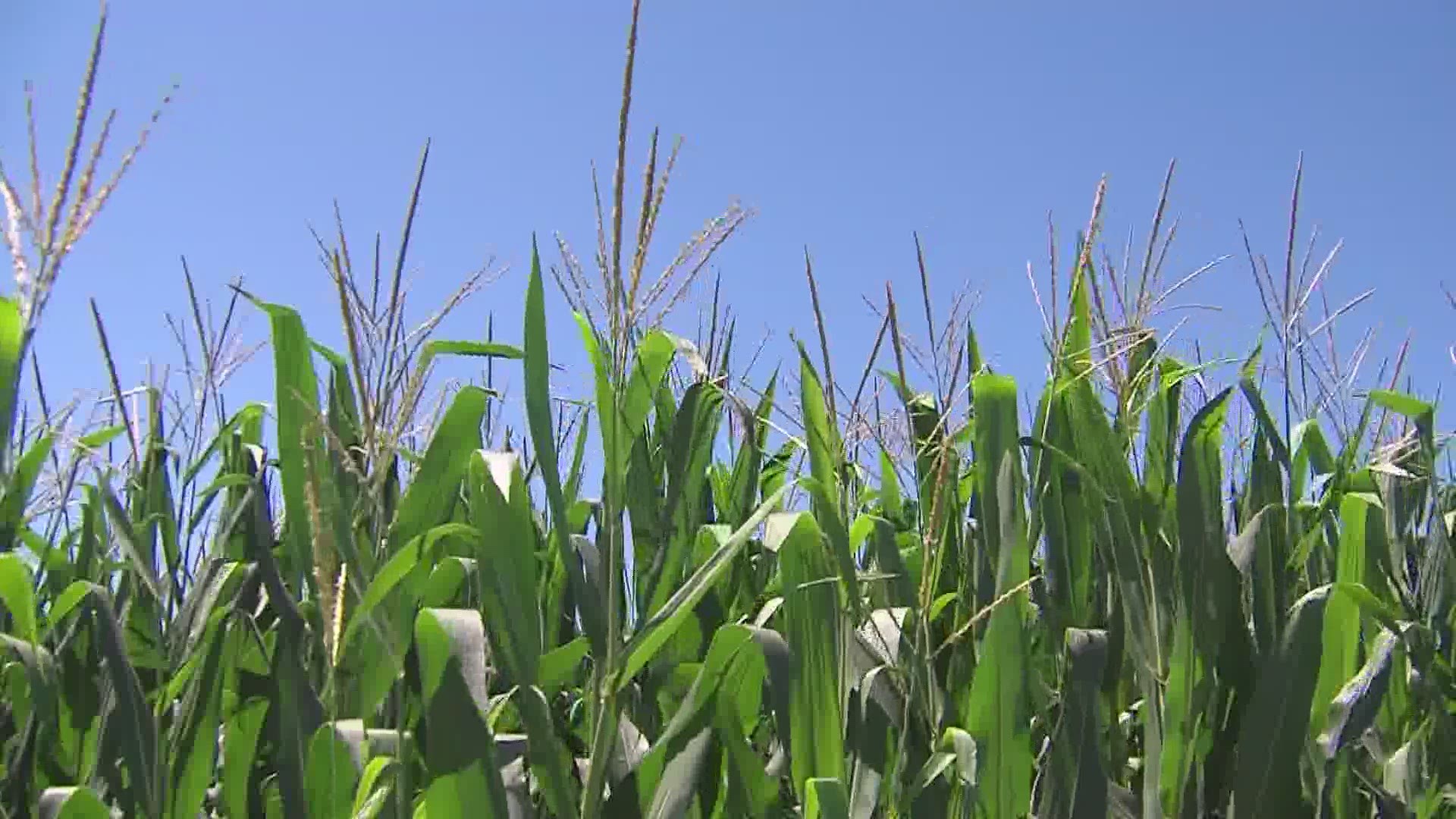RADCLIFFE, Iowa — Every year, fuel suppliers are required to blend 15 billion gallons of renewable fuels like ethanol into the nations fuel supply.
But recently that hasn't been happening.
Now, we hear from a local farmer who has a message for the Trump Administration.
"Just the demand reduction for ethanol from these waivers is tough for us," Radcliffe farmer Jacob Handsaker said.
Jacob is a fifth generation farmer.
"We market all of our crop to local ethanol plants," Jacob said. "It's seven miles away from our shop and we can haul in there. It's safe, it's efficient, it's it really helps the harvest."
But because of small oil refinery waivers, farmers like Jacob are hurting right now.
"We'd like to see some good support from from the administration and Secretary Perdue on ethanol and these RFS waivers," Jacob said.
40% of corn grown in the U.S. is used to make ethanol.
By law, that ethanol is supposed to be blended into the nation's fuel supply.
But it didn't happen this year, and hasn't for awhile.
The EPA is granting waivers to small oil refineries which allows them to not meet their obligations.
Since President Trump took office, there's been a dramatic increase in the number of small oil refineries applying and winning approval for renewable fuel standard exemptions, also called RFS waivers.
An increase in waivers means a decrease in demand for Iowa corn and falling prices to boot.
"We're beholden to the price of corn," Jacob said.
Last month, Senator Joni Ernst asked President Trump to discuss RFS waivers with the EPA.
"I will be able to follow up next week," Ernst said. "Yes, I have had recent conversations and we are working through that."
What exactly that will mean for Iowa's corn farmers remains to be seen.
In a visit to Iowa this week, Secretary of Agriculture Sonny Perdue said the Trump Administration has agreed that moving forward a full 15 billion gallons will be blended in the supply each year.
Even if there are RFS waivers granted.
"If any waivers are issued, and we're advocating the whole nationally to the 10th circuit decision, that limits it very severely about who's even eligible for those extensions," Perdue said. "But if one or two were granted, that means the RVO or the obligation up here is going to be 15 billion gallons, plus what's ever granted to equal and net of 15 billion gallons. That's what the law calls for. And that's what the president has committed."
The Renewable Fuels Association reports small refinery exemptions shorted the required blending volumes by 4 billion gallons from 2016 to 2018.
According to data on the EPA’s website, there are currently 98 RFS waivers pending right now.
Iowa’s Ag community wants the EPA to reject those petitions.

